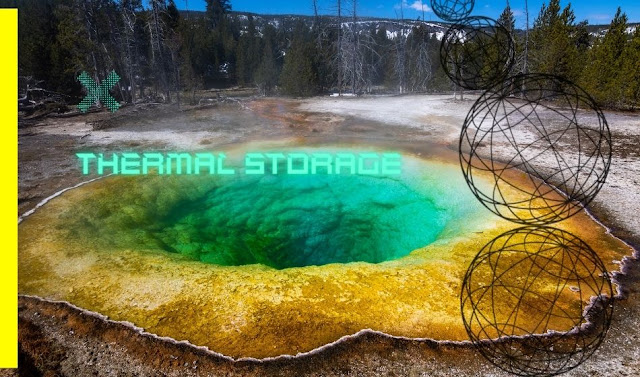Energy storage has become critical for the stability of electricity all around the world. Novel and efficient technologies of energy storage are essential to save money for all electricity consumers. With the growing community, there has been an upsurged demand for electric energy in every single house and industry. It has become hard for everyone to cope up with the higher electricity bills, but the different efficient energy storage technologies can save everyone from being dependent on any single costly system. The energy storage also helps in providing backup power during disruptions. Let’s explore in this article some of the optimal energy storage technologies employed today.
Thermal Storage
Thermal storage is the top innovative energy storage technology that makes electricity employing the power and rays from the day-star, even when it is not shining. Solar panels are built for thermal storage, and these panels obtain heat from the sun and store it in water, molten salts, or any other liquids. This stored energy is what produces the electricity when after the sun is set. For example, there is a Rice Solar Energy Project in California that is employing the molten salt storage system to render electricity to approx. 68000 homes every year.
Compressed Air
As the name indicates, this kind of electricity storage system employs compressed air for the generation of electricity. It basically manipulates the pliant potential energy of compressed air to boost the efficiencies of the traditional gas turbines. The compressed air energy storage systems generally compress air using electricity but in the off-peak hours and then store it inside the underground caverns. Now, during the hours of peak demand, that compressed air from the underground storage is drawn out and flamed with natural gas. All this happens in a combustion turbine to engender electric energy.
Hydrogen
Hydrogen energy storage is considered the most environmental-friendly way of electricity generation as it takes no carbon fuel at all for this production. However, in such systems, excess electricity is employed to create hydrogen, which is then stored and utilized in engines, fuel cells, and gas turbines. The hydrogen energy storage system can produce immense electricity without dispensing any harmful emissions in the environment. There is also a potential to generate this hydrogen from wind power and store it in wind turbine towers. This way, the energy would be generated as the wind blows.
Batteries
The reliable energy storage system manufacturer also contracts such systems for the generation of power. Batteries, such as those found in mobiles or flashlights, also can save energy at a massive scale. Some common examples of such batteries include lithium-ion batteries, sodium-sulfur batteries, metal-air batteries, and lead-acid batteries. In Texas, there are several wind farms where such batteries are installed to store and generate electricity.
What is the Future?
With more advancements in science and technology, more ways are researched and tested to combat the current electricity problems faced worldwide. Hopefully, in some time, with all these novel technologies, there is a chance that everyone will soon be able to take benefit of clean and renewable energy in the future.



Comments
Post a Comment